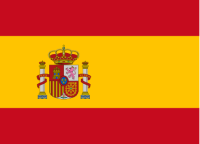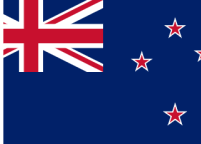1. Introduction
New Zealand is globally recognized for its high quality of life, robust economy, and stunning natural scenery, making it a highly desirable destination for immigrants. The United Nations Human Development Index 2020 ranked New Zealand 14th globally, indicating superior living standards.
Permanent residency in New Zealand offers numerous benefits, including access to world-class healthcare and educational systems, economic stability, and a safe, multicultural society. As per the 2020 Global Peace Index ranking report, New Zealand is the second safest country in the world.
Additionally, New Zealand’s progressive and inclusive society, clean environment, and balanced lifestyle contribute to its appeal among potential immigrants seeking a better quality of life.
2. Overview of New Zealand’s Immigration System

Brief History and Current Trends:
New Zealand’s immigration policy has historically been influenced by its colonial past and the need for skilled labour. Recently, the focus has shifted towards attracting highly skilled immigrants to support economic growth and fill skill shortages in certain sectors.
The current trend is towards a more selective immigration process, with policies favouring immigrants who can contribute significantly to the economy and society.
Financial Year (Jul-Jun) Accepted Visa | ||||||||
FY | 2015/16 | 2016/17 | 2017/18 | 2018/19 | 2019/20 | 2020/21 | 2021/22 | 2022/23 |
Accepted Applicant | 57,952 | 52,463 | 43,948 | 48,788 | 57,788 | 40,127 | 2,13,807 | 74,470 |
Source: https://www.immigration.govt.nz/ | ||||||||
Table 1 – Accepted Resident Visa applicant from FY 2015/16 – 2022/23
Key Facts and Figures:
- As of the latest available data, New Zealand’s immigration program processes around 50,000 – 80,000 resident visas per year; 2021-22 was relatively high at 200,000.
- The Skilled Migrant Category remains the primary pathway, accounting for a significant portion of the total residency visas granted.
Nationality | Financial Year (Jul-Jun) Accepted | |||||||
2015/16 | 2016/17 | 2017/18 | 2018/19 | 2019/20 | 2020/21 | 2021/22 | 2022/23 | |
India | 6,591 | 5,770 | 4,870 | 5,660 | 6,231 | 3,472 | 32,196 | 8,257 |
China | 5,559 | 4,986 | 3,775 | 3,880 | 3,672 | 2,085 | 12,036 | 4,178 |
Philippines | 2,793 | 2,334 | 1,896 | 2,083 | 3,282 | 2,560 | 18,658 | 6,158 |
Great Britain | 3,306 | 3,070 | 2,934 | 2,875 | 2,886 | 3,065 | 6,357 | 2,284 |
South Africa | 1,333 | 1,243 | 1,114 | 1,688 | 2,279 | 1,546 | 6,181 | 1,719 |
Source: https://www.immigration.govt.nz/ | ||||||||
Table 2 – Top five of Nationalities for resident visas in New Zealand from FY 2015/16 – 2022/23
- The top source countries for resident visas include India, China, the Philippines, the United Kingdom, and South Africa.
3. New Zealand Resident to Permanent Resident Visa
Getting a Permanent Resident Visa in NZ typically follows the acquisition of a Resident Visa. Resident Visas are characterized by specific travel conditions, confining re-entry to New Zealand as a resident up to a designated date. Conversely, a Permanent Resident Visa offers the flexibility of limitless re-entry to New Zealand.
Below is the key difference between a Resident Visa and a Permanent Resident Visa
Aspect | Resident Visa | Permanent Resident Visa |
Travel Conditions | Comes with specific travel conditions for re-entry to NZ until a certain date | Allows indefinite re-entry to NZ without any travel restrictions |
Duration of Status | Temporary, although it can lead to permanent residency | Permanent status in NZ |
Path to Permanent Residency | A prerequisite for applying for a Permanent Resident Visa | Granted after fulfilling conditions of the Resident Visa and showing commitment to NZ |
Eligibility Requirements | Various, depending on the visa type, including work, family status, etc. | Must have held a Resident Visa for at least 24 months and met its conditions |
Restrictions on Movement | Limited ability to leave and re-enter NZ without affecting visa status | No restrictions on leaving and re-entering NZ |
Access to Services and Benefits | Limited compared to Permanent Resident Visa; some restrictions may apply | Full access to services and benefits in NZ similar to NZ citizens |
Application Process | The initial step to living permanently in NZ involves various criteria based on the visa category. | Follow-up process after living in NZ for a certain period on a Resident Visa |
Purpose | Designed for people to start their life in NZ, often tied to specific purposes like work, study, or family | Indicates a long-term commitment to living in NZ and integrating into NZ society |
This table highlights the key differences between the two types of visas, focusing on aspects like travel conditions, duration of status, and access to services and benefits, among others.
4. Transition from Resident to PR visa
The process of transitioning from a Resident to a Permanent Resident Visa in New Zealand involves several key steps and conditions:
- Eligibility for Permanent Resident Visa:
- The applicant must have held their resident visa for at least 24 months.
- They must have met any conditions of their Resident Visa.
- They must have shown a commitment to New Zealand in one of five specified ways that meet the requirements.
- Start of the 24 months:
- If the Visa was issued while the applicant was in New Zealand, the 24 months start from the issuance date.
- If the Visa was issued while the applicant was outside New Zealand, the 24 months start from their arrival in New Zealand.
- Non-Principal Applicants:
- Individuals who were not the principal applicant in the original residence application usually cannot apply for a Permanent Resident Visa unless they apply at the same time as or after the principal applicant.
- Extension of Travel Conditions for Non-Eligible Applicants:
- Suppose an individual is not eligible for a Permanent Resident Visa. In that case, they may still be able to extend the travel conditions on their Resident Visa. This extension allows more time to return to New Zealand as a resident. The extension can be for 24 months, 12 months, or 14 days, depending on the circumstances.
- Expired Resident Visa:
- Suppose a person is outside New Zealand without valid travel conditions to re-enter as a resident. In that case, their Resident Visa is considered expired. However, they haven’t been outside New Zealand for long. In that case, they may still be able to obtain a Permanent Resident Visa or a new Resident Visa.
This process ensures that individuals who have committed to New Zealand and fulfilled the necessary residency requirements can transition to permanent residency, allowing them indefinite re-entry and a more permanent status in the country.
5. Types of Permanent Residency Visas:
New Zealand offers a variety of visas that may allow you to live in the country. These visas cater to different categories, including skilled workers, entrepreneurs, and family reunification. The following data provides a snapshot of the distribution of application streams by nationality from FY 2013/14 to FY 2023/24:
Business / Skilled: This stream is predominantly chosen by applicants from various countries, reflecting New Zealand’s focus on attracting skilled labour.
International / Humanitarian: This category, though smaller compared, shows New Zealand’s commitment to global humanitarian efforts.
Parent Sibling Adult Child Stream: A notable percentage of applicants from countries like Great Britain and China utilize this stream, highlighting the importance of family reunification.
Uncapped Family Sponsored Stream: This stream sees significant application volumes, especially from countries like India and the Philippines.
Table 3: The table below provides detailed percentages for each nationality:
Nationality | Application Stream(FY 2013/14 – FY 2023/24) | |||
Business / Skilled | International / Humanitarian | Parent Sibling Adult Child Stream | Uncapped Family Sponsored Stream | |
India | 83% | 1% | 2% | 14% |
Philippines | 88% | 1% | 1% | 11% |
China | 70% | 1% | 10% | 20% |
South Africa | 92% | 1% | 2% | 5% |
Great Britain | 64% | 1% | 3% | 31% |
Source: https://www.immigration.govt.nz/ | ||||
Skilled Migrant Category:
This category of Visa uses a points-based system to assess applicants based on work experience, qualifications, age and an offer of skilled employment in New Zealand. Applicants must score at least 160 points to submit an Expression of Interest (EOI). Successful EOIs are then invited to apply for residency, with an average processing time of six months. Key criteria include recognized qualifications, relevant work experience, and proficiency in English.
The Care Workforce Work to Residence Visa:
This Visa is designed for individuals employed or offered a job in the care workforce in New Zealand. It provides permanent residency for those who have worked in such a role for 24 months, with applicants needing to be 55 years or younger. The visa application starts from NZD 4290 and allows holders to live, work, and study in New Zealand, including partners and dependent children in the application. Requirements include proof of identity, good character, good health, and English language proficiency. The job must be full-time, pay at least the level 4 support workers’ minimum wage, and be permanent or fixed-term for at least 12 months.
Family Category Visas:
This category includes visas for partners, dependent children, and parents of New Zealand citizens or permanent residents. The Partner Visa requires proof of a genuine and stable relationship. At the same time, the Parent Category Visa is often capped and requires sponsors to meet income criteria.
Business and Investor Visas:
Investor 1 and Investor 2 visas require minimum investments of NZ$10 million and NZ$3 million, respectively. The Entrepreneur Work Visa targets those establishing or purchasing a business in New Zealand, requiring a detailed business plan and a minimum capital investment.
Other Categories:
The Long Term Skill Shortage List Visa is for individuals with skills in occupations that are in long-term shortage in New Zealand. Applicants must have the necessary qualifications, experience, and an offer of employment in New Zealand.
6. Eligibility Criteria

- General Requirements:
- Age: While most residency visas have no age limit, points are awarded for age in the Skilled Migrant Category, favouring applicants between 20 and 39.
- Health: Applicants must have an acceptable standard of health, often demonstrated through medical examinations and chest X-rays.
- Character: Good character is essential, typically proven with police certificates from a country where the applicant has lived for more than 12 months in the last ten years.
- English Language Proficiency: Demonstrated through recognized English language tests like IELTS, with specific score requirements varying by visa category.
- Specific Criteria for Each Visa Category:
- Skilled Migrant Category: Requires a minimum of 160 points in the points-based assessment, a job offer in New Zealand, relevant qualifications and work experience.
- Family Category Visas: Partners must prove a genuine and stable relationship, while parents must meet sponsorship and income requirements.
- Business and Investor Visas: Investors must meet investment amount thresholds and spend a certain amount of time in New Zealand, whereas entrepreneurs need a detailed business plan and sufficient capital.
7. Application Process
- Step-by-Step Guide:
- Determine Eligibility: Ensure you meet the criteria for your desired visa category.
- Gather Documents: This includes passports, proof of relationship (for family visas), business plans (for entrepreneur visas), and police certificates.
- Submit Application: Applications can often be submitted online, along with the required fees.
- Application Fees vary by visa type, with the Skilled Migrant Category fee around NZ$2,710 and Investor Visa fees significantly higher.
- Processing Times and Success Rates:
- Processing times vary; the Skilled Migrant Category takes approximately six months, while Family and Investor visas can take longer.
- Success rates fluctuate based on the visa category and the quality of the applications. Generally, well-prepared applications with thorough documentation have higher success rates.
8. Life in New Zealand as a Permanent Resident

Rights and Responsibilities:
- Rights include access to state-funded public services like healthcare and education, the right to vote, and the freedom to live, work, and study in New Zealand.
- Responsibilities include obeying the law, paying taxes, and, for some visas, maintaining investment or employment in New Zealand.
Integration into New Zealand Society:
- Learning about New Zealand’s culture, history, and customs can facilitate smoother integration.
- Participating in community events, joining local clubs, and building a social network are effective ways to adapt to the New Zealand way of life.
9. Challenges and Common Pitfalls
Potential Obstacles:
- Common issues include misunderstandings about the visa requirements, documentation errors, and underestimating the complexity of the application process.
- Delays often occur due to incomplete applications or failure to provide the necessary evidence.
Advice on Overcoming Challenges:
- Thoroughly research visa requirements and prepare all documents meticulously.
- Seeking advice from immigration professionals can help avoid common mistakes.
- Keep updated on the progress of your application and swiftly address any requests for further details.
10. Conclusion
This guide has provided comprehensive insights into achieving permanent residency in New Zealand, covering eligibility criteria, various visa categories, the application process, and life as a permanent resident. We’ve also discussed the challenges applicants may face and how to overcome them.
About ICL Immigration & How We Can Help:
ICL Immigration, based in Auckland, specializes in guiding individuals through the complexities of New Zealand’s immigration system. Our team of experienced immigration experts are equipped to offer personalized assistance, ensuring that your journey towards obtaining permanent residency is as smooth and efficient as possible. We provide expert advice on choosing the right visa category, preparing your application, and addressing any challenges.
Additional Resources & References
- New Zealand Immigration: https://www.immigration.govt.nz/
- New Zealand Now (resources for new migrants): https://www.newzealandnow.govt.nz/
- Ministry of Business and Innovation: https://www.mbie.govt.nz/
Disclaimer:
For the latest data and more detailed information, always refer to the official Immigration New Zealand or New Zealand government website.
ICL Contact Information for Further Assistance:
- Email: info@immigrationconsultancies.com
- Phone: 09 369 1681
- Address: 500 Karangahape Road, Auckland Central, 1010, New Zealand
- Website:https://immigrationconsultancies.com/














